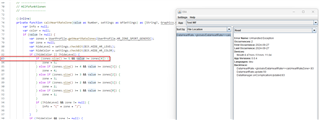
As you can see I get a crash when accessing the heart rate zones - this happens with a test app on my own device and it happens very rarely - my WF ran for a day while displaying the heartrate as complication...
Any ideas why this can happen?
1) Is it possible that UserProfile.getHeartRateZones may return null at some point?
2) can I rely on the docs regarding function return types like e.g. the on here: https://developer.garmin.com/connect-iq/api-docs/Toybox/UserProfile.html#getHeartRateZones-instance_function
It says the function can't return null - is that a guarantee?

